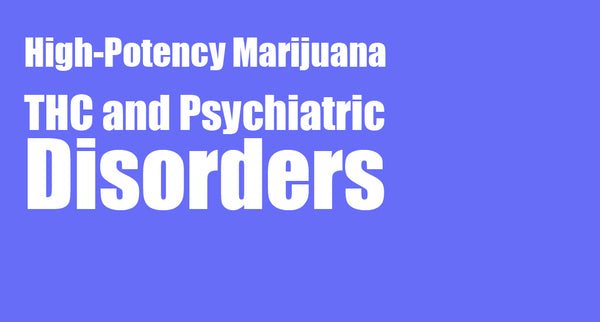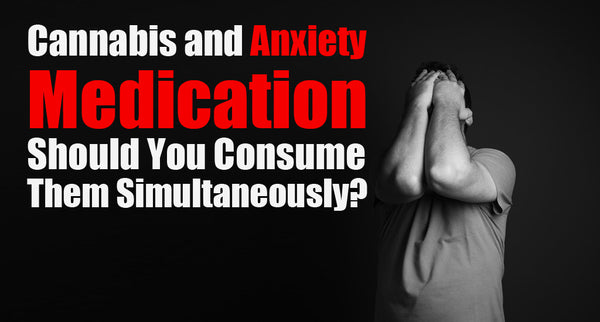
Cannabis Self-Medication Guide - Part 2
If you haven't read part 1, here it is.
Cannabis is far from a mellow recreational drug. It comes in all shapes and forms, tastes and strains, with varying characteristics across the spectrum of getting stoned that is available. In addition, it has incredible healing and medicinal properties that, if used carefully, can improve one’s health, mind and lifestyle in a myriad of ways.
The Benefits Of Self Medication
Conversely, self-medication is health in your own hands and allows you to avoid many of the limitations that the healthcare and pharmaceutical industries contend with. There are many benefits derivable from self-medicating with natural drugs and herbal remedies.
Here are some potential benefits of self-medication with natural drugs:
- Natural remedies are often perceived as being gentler and safer than pharmaceuticals, with fewer side effects.
- Many natural drugs are easily accessible and relatively affordable.
- Some medicines from nature have been used for centuries and have a long-standing history of traditional use, with strong anecdotal evidence of effectiveness.
- Natural remedies can often be used as a complementary approach to pharmaceuticals, which may reduce the need for higher doses of said pharmaceuticals.
- Some natural drugs may offer additional health benefits beyond their primary use, such as improving digestion or boosting the immune system.
- Natural remedies are often preferred by people who want to take a more holistic or natural approach to their health and wellness — avoiding potentially harmful man-made substances.
However, it's important to note that natural remedies can also have side effects and may adversely interact with other medications or medical conditions. It's crucial to research and understand the risks and benefits of any natural remedy and to speak with a healthcare provider before using them.
How To Negate The Side Effects Of Weed
While it's not possible to completely negate all of the potential side effects of cannabis, there are some strategies that may help minimize them. Here are some tips for using cannabis in a way that maximizes benefits while minimizing risks:
-
Choose the right strain: Different strains of cannabis can have varying effects, so it's important to choose a strain that is well-suited to your needs and preferences. For example, strains high in CBD may be less likely to cause anxiety or paranoia than those high in THC.
-
Start with a low dose: It's always best to start with a low dose of cannabis and gradually increase it as needed, as this can help minimize the risk of adverse effects.
-
Use a safe method of consumption: Smoking cannabis can have negative effects on lung health, so it may be preferable to use a vaporizer or edibles instead. Edibles can be particularly tricky to dose properly, making it even more important to start with a low dose.
-
Avoid mixing with other substances: Cannabis can interact with other substances, such as alcohol, which can increase the risk of adverse effects. It's best to avoid mixing cannabis with other substances and use it in a controlled setting.
-
Take breaks: Regular cannabis use can lead to tolerance and dependence, so it's important to take regular breaks and avoid using cannabis every day. This can help reduce the risk of addiction and other negative effects.
-
Seek professional advice: If you're unsure about how to use cannabis safely, or if you're experiencing negative effects despite your best efforts, it's important to seek advice from a healthcare professional or a trained cannabis budtender or expert. They can provide personalized guidance on how to use cannabis safely and effectively.
Why You Should Make A Cannabis Schedule
When consuming cannabis for recreational purposes a schedule is certainly not required, and spontaneity of consumption is commonplace. However, when striving for the medical benefits that cannabis has to offer, a proper cannabis consumption schedule can help you reap the most reward from your bud, while negating potential side effects. Three benefits of a medicinal cannabis consumption schedule are:
-
It ensures consistently and regularly dosing, which can lead to more consistent therapeutic effects.
-
Second, it can help prevent overuse or misuse of cannabis, which can lead to negative side effects or dependence.
-
Finally, a schedule can help the individual track their cannabis use and monitor its effects, which can be helpful for adjusting dosages or trying different strains or products.
To create a cannabis consumption schedule, it can be helpful to first consult with a cannabis bud-tender or expert, who is knowledgeable about medical cannabis. They can help determine the appropriate dosage, strain, and method of consumption based on the individual's medical condition, history, and other factors.
This schedule should take into account factors such as the onset and duration of effects of different methods of consumption, the individual's daily routine and schedule, and any other medications or treatments they may be using.
For example, if the individual is using cannabis to manage pain and wants to avoid the psychoactive effects of THC, they may choose to use a high-CBD tincture or capsule in the morning and a low-THC tincture or capsule in the evening. If they prefer smoking or vaporizing cannabis, they may choose to do so before meals or at bedtime.
It's important to start with a low dose and gradually increase as needed to achieve the desired therapeutic effects. The schedule should be flexible and adjustable based on the individual's response to treatment and any changes in their medical condition.
Final Words
No doubt, there is a stigma behind self-medication, as well as the type of natural drugs typically used for self medicating. Herbal medicines are for the majority shunned by traditional western medicine. However, in recent years, science has begun to catch up in regard to proving and accepting ancient wisdoms in medicine, health and wellness that modern society has seemingly forgotten.
Monroe Blvd and 421 Store hope to end this stigma. We strongly encourage our readers to be proactive about their health, and be aware of every opportunity that exists for their wellbeing. Moreover, we support those who decide to take health into their own hands with self-medication and we have faith in your journey.
Stay toasty my friends..



